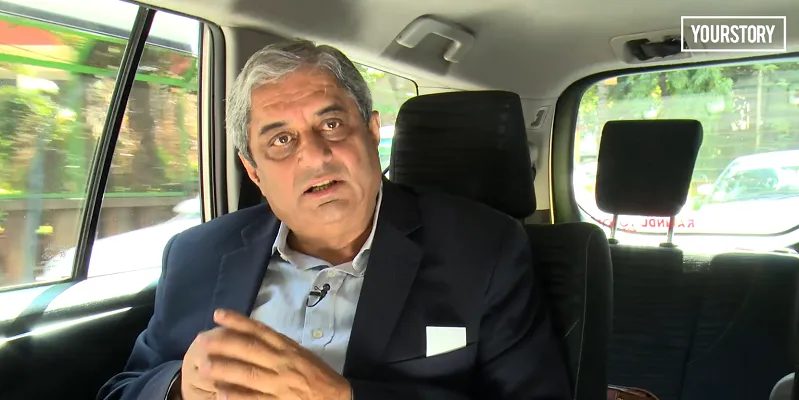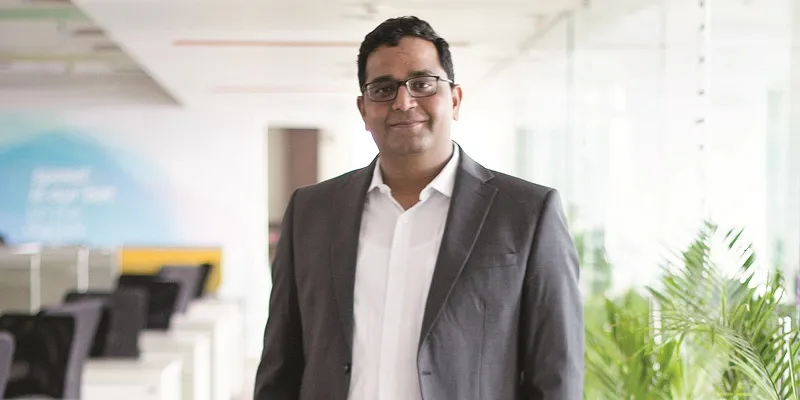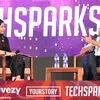[Year in Review 2019] Tapping into the great $20 trillion Indian opportunity
In this series of yearend videos, YourStory gives you a glimpse of what worked and what needs work in the Indian startup ecosystem.
Indian startups are fast creating disruptive tech-based solutions and looking to scale their business in their addressable markets. They are stressing on product innovation, utilisation and defensibility, market potential, scalability of the solution, clarity of the revenue models, and more.
In this age of technological disruption, India needs to innovate and pole-vault, according to entrepreneur, technologist and Infosys Co-founder Nandan Nilekani, the man regarded as the catalyst for digitisation in India.

Nandan Nilekani and YourStory Founder and CEO Shradha Sharma
Operating at scale is the only solution to really making a difference in the lives of the 1.3 billion people in the country, he believes.
“The cumulative impact of a marginal increase in productivity of these people is enormous,” he said in a high-impact interview this year conducted by YourStory Founder and CEO Shradha Sharma.
And no one agrees with him more than Aditya Puri, Managing Director of HDFC Bank. In another such high-impact interview, Puri said India presents a $20 trillion opportunity waiting to be tapped, thanks to its yet under-penetrated consumer market.

Aditya Puri, Managing Director, HDFC Bank
In addition to the need to turn India into a manufacturing economy from a consumption one, India needs to address the issue of job creation, he adds.
This is particularly important as the youth of today is exposed to an entirely different world – the world of television and social media, which did not exist previously – and hence, is more aware of the opportunities present.
Paytm Founder and CEO Vijay Shekhar Sharma has always been a big believer in the Indian economy. He maintains that the Indian startup ecosystem is as big and scalable as anywhere else in the world.

Vijay Shekhar Sharma, Founder of One97 Communications
“For an Indian, this is the place to be,” he said at YourStory’s annual Techsparks summit, adding, “There has been a leap of mindset since the time we started. Back then, there was no investor. Today, you can build anything in India. If you're an Indian entrepreneur, you can get a meeting with any investor in the world."
The Paytm founder is not the only one betting on India becoming an internet ecosystem like the US and China. Kunal Shah, Founder and CEO, CRED, said at the same event, “Like in China, the wave of second-time founders who can succeed is now here in India.”
This growth of the internet ecosystem is something Sequoia Capital Managing Director Rajan Anandan understands all too well.

Rajan Anandan
Having worked in top exec roles at Microsoft India and Google, he commented on the rapid adoption of smartphone-driven digital technologies and said:
“India has grown from 10 million android users to 400 million plus.”
As the Managing Director of Sequoia Capital, he leads Surge, the firm’s accelerator programme for early-stage startups in India and Southeast Asia, and has a ringside view of India’s entrepreneurial ecosystem.
Building tech in India for this evolving market excites founders and investors. The man who built India’s first unicorn, Naveen Tewari, CEO, InMobi, said:
“Building something for India has to have its own flavour and essence.”
Today, InMobi has disrupted advertising on mobile devices, and has taken the world of marketing, Artificial Intelligence (AI), and media by storm, making headlines when Japan’s SoftBank invested $200 million in it.

Naveen tewari, Founder and CEO, InMobi
In a fireside chat at TechSparks, Softbank’s Munish Varma shared his perspective on the age of technological disruption and said Indian capital markets are soon going to see lots of new-age company listings.
The venture capital firm specialising in growth capital and late-stage startup investments has backed numerous successful startups across the world and in India. SoftBank has deployed $10 billion in the Indian ecosystem, including Paytm, Oyo, Delhivery, and FirstCry, among others, and is now one of the biggest investors in Indian tech-enabled startups.


![[Year in Review 2019] Tapping into the great $20 trillion Indian opportunity](https://images.yourstory.com/cs/2/a182c7e0140711e987e2f7248b252f46/Image6qyt-1577110022295.jpg?mode=crop&crop=faces&ar=2%3A1&format=auto&w=1920&q=75)







